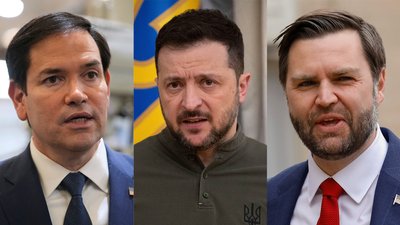The 61st Munich Security Conference (MSC) opens on 14 February 2025, bringing together over 60 heads of state and more than 100 ministers for three days of security talks in Germany.
According to the event's agenda, conference chairman Christoph Heusgen will open the event, followed by an opening speech from German Federal President Frank-Walter Steinmeier. The conference agenda includes main program events, approximately 200 side events, and dozens of public sessions.
US Secretary of State Marco Rubio confirmed earlier that while the conference will address multiple international security issues, the Russian war against Ukraine remains the central topic. US Vice President JD Vance will lead the US delegation, as President Donald Trump will not attend. Vance is scheduled to meet with Ukrainian President Volodymyr Zelenskyy for bilateral talks.
According to conference chairman Heusgen, the event may yield preliminary outlines of a US future peace plan for Ukraine. He noted that the conference organizers hope Munich will be used for achieving progress toward peace in Ukraine, and negotiations to take place behind the scenes.
US Special Representative for Ukraine and Russia Keith Kellogg will attend, but has clarified he won't present a peace plan in Munich, explaining that such an agreement should come from Trump:
"The only guy that can do that in the world, and bring this to a conclusion, is Donald J. Trump," he said.
However, he will discuss Trump's vision for ending the Russian-Ukrainian war.
The conference agenda encompasses energy security, climate change, artificial intelligence, international trade, and European defense capabilities. The format includes no legally binding final communiqués or resolutions.
Related:
- “If Russia couldn’t beat Ukraine in 2022, why would it win now?” A defiant voice amid despair
- Trump’s neo-Morgenthau plan for Ukraine is a threat to free Europe
- Peace at what price? Bloomberg maps three ways Ukraine war could end
- US Defense Secretary Pete Hegseth rejects suggestions of early concessions to Putin
- Zelenskyy to Trump: Putin pretends to want peace because he’s “afraid of you”
- German Chancellor on US-Russia negotiations: We will never accept a dictated peace
- Rubio: Ending war in Ukraine to top agenda at Munich Security Conference

